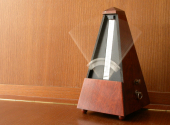
Ten Rules for Musicians: Band Practice
Band practice is often a tedious, laborious, but important process in ensuring that everything goes well on stage and that you and your fans are satisfied. Here are today's Ten Rules for making your rehearsal efficient, musically productive and more fun.
This article kicks off a new series for beginning and more advanced bands. In it, I'll offer rules and tips for rehearsing, playing live, recording and other activities that are part and parcel of any band's life.
What all needs to be done before band practice can take place.
Ten Rules for the rehearsal studio
1. Be punctual
Band practice is not a recreational activity or a casual party. Be on time if you can. That way, you can spend more time together, and it shows that you appreciate your colleagues. Be collegial and be professional.
2. How long?
Do you really need a six-hour rehearsal to get through a few songs? With honest preparation by everyone and efficient work, two to three hours including a break is certainly enough. After that, your attention wanes and your energy is wasted. It is better to get three songs well rehearsed than to whizz through the whole repertoire with mistakes. Focus on quality, not quantity.
3. Make a list of things to work on
Before the rehearsal, make a list of the problems that need to be dealt with. This will help you focus on the tasks at hand and not get distracted by other issues. Your rehearsal will be much more efficient, shorter and you won't waste your own energy. Leave other matters for the break or discuss them after the rehearsal over a coffee at a nearby restaurant.
4. Be prepared
Learn your parts at home. There, you can practice the difficult parts slowly at your leisure. In rehearsal, you should already be dealing with interplay and matters relating to the song as a whole. By not knowing your own part, you will hold back yourself and your colleagues and you will definitely not feel comfortable.
5. Make chord sheets
In rehearsal it is often necessary to carefully rehearse a spot with the necessary mileage. It is a good idea to have the structure of the piece drawn out on paper so that you can all get a better feel for it. I also highly recommend unifying terminology; what is an intro, what is a verse, chorus, interlude, bridge. If the musicians don't have sheet music, a chord sheet will speed up the arrangement considerably.
6. Make visual contact
Every band has its frontman, who is not necessarily the best musician or a connoisseur of musical notation. It is the leader of the band on stage who uses body communication to control the flow of the song. He or she knows the structure, and by gestures or eye contact determines whether to increase the volume, decrease the expression, may indicate when to come back in after a break, or signals an expected change. That's why everyone should be able to see him or her. Only during band practice can you agree on and rehearse non-verbal communication.
7. Split rehearsal
This is familiar to brass players and participants in larger orchestras. Some parts are good to rehearse and polish with just piano or guitar, so that everything runs smoothly later during the rehearsal with the full band. This applies especially to the lead and backing vocals and the brass section. You'll work out phrasing, breaths and pronunciation in a relaxed manner. In a full band rehearsal, there's no room for these important issues.
8. Quiet rehearsal
Is it really necessary to have the amplifiers properly heated up and get high on decibels even during rehearsal? At full blast, you have no chance of noticing details and mistakes. To better fix the arrangement and understand the relationships between the individual parts, it is better to turn off the amplifiers and microphones, the drummer can play the rhythm with his hands on a chair. In this way you will hear the details of the other parts, you will more easily detect where it collides and, most importantly, you will learn the structure of the song together.
9. Three times is plenty
It often happens that one song is played five or more times. Constant unnecessary drilling does not improve anything and half an hour of "jamming" does not make the mistakes disappear by themselves. First, give the song a tentative run-through, then clean up the problem areas. After that, you can do one quiet rehearsal and finally a final play-through with all the whistles and bells.
10. Record the rehearsal
Don't rely on remembering everything. Take notes. At home, when you practice, you'll remember everything faster and easier, and you won't hold up your colleagues or yourself during the next rehearsal. Everyone has a voice recorder on their smartphone. Once you've perfected the song, record it. You'll be able to judge in hindsight whether your part fits the song, how the song works and what else would benefit the whole thing. Then you can break it all down over a beer.
An example of a rehearsal where more than one of our Ten Rules is violated.
In short
- Don't point your amplifiers at your colleagues, but at yourself. You'll hear each other better.
- Don't turn up the volume on the quieter instruments; try turning down the loud ones.
- Don't put the bass amplifier in the corner. There, it will increase its bass considerably and you will turn your colleagues into enemies.
- Use earplugs. Surprisingly, you will hear everything better and more clearly.
- During the breaks, give your instrument a rest as well. This will save the vocal cords of colleagues who need to solve a problem or even just say something to you.
Next
The next Ten Rules will be about the sound check before the concert. We'll try to tell you what mistakes to avoid and what not to forget, so that your concert can turn into an amazing event for you and your audience.
Which of these rules are you going to apply at your next rehearsal? Let us know in the comments below.
If you have found an error or typo in the article, please let us know by e-mail info@insounder.org.





